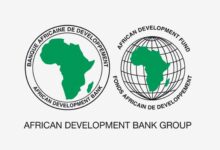Nigeria’s Gold, Limestone, and Bitumen Output Rising as Mining Week Turns 10
Nigeria’s solid minerals sector is gaining fresh momentum, with rising production of gold, limestone, and bitumen pointing to the industry’s increasing contribution to local economic growth and job creation.
The Miners Association of Nigeria (MAN), through its President, Mr. Dele Ayankale, disclosed this in Abuja while unveiling the 10th edition of Nigeria Mining Week—a flagship event that has become a hub for shaping policies, attracting investments, and introducing global best practices into the Nigerian mining space.
From Progress to Global Relevance
This year’s edition, themed “Mining from Progress to Global Relevance”, is scheduled for October 15–17, 2025, in Abuja. Organized by MAN in partnership with PwC and the VUKA Group, the conference has over the past nine years become the benchmark for innovation, policy reform, and investment dialogue in Nigeria’s mining industry.
Ayankale credited past editions with stimulating policy reforms, unlocking financing opportunities, and enhancing the adoption of new technologies across the sector. He emphasized that mining companies are increasingly investing in modern, sustainable techniques to raise efficiency, reduce environmental footprints, and strengthen community engagement.
Nigeria’s Strategic Minerals Advantage
Nigeria’s mining potential remains vast. With over 44 distinct mineral deposits, including world-class reserves of gold, limestone, iron ore, and bitumen, the country holds the keys to becoming a continental leader in mining.
Bitumen and limestone production, in particular, offer strategic economic advantages:
- Limestone is critical for Nigeria’s fast-growing cement and construction industries.
- Bitumen offers import-substitution opportunities, as Nigeria still spends heavily on asphalt imports despite having one of the largest natural deposits globally.
- Gold, already a focus of artisanal and small-scale miners, is increasingly attracting structured investments capable of building a formal export market.
Collaboration Driving Sectoral Growth
Ayankale stressed that the progress so far has been achieved through strong collaboration among stakeholders—government, investors, operators, civil society, and international partners.
The 10th anniversary edition of Nigeria Mining Week is expected to deepen this collaboration through:
- Deal rooms connecting investors with operators and project sponsors.
- Technical workshops showcasing global mining technologies.
- Policy roundtables addressing artisanal mining, ESG compliance, and community engagement.
New features include a Steel Forum, Women in Extractives Forum, and a West Africa Gold Forum—all designed to broaden investment opportunities and highlight untapped potential across the mining value chain.
Government Commitment to Mining Transformation
The Minister of Solid Minerals Development, Dr. Dele Alake—represented by Permanent Secretary Faruk Yabo—reaffirmed the government’s determination to position Nigeria as a prime mining investment destination.
Alake highlighted the role of the PIA-style reforms now being mirrored in mining, alongside fiscal incentives aimed at attracting foreign direct investment. He noted that Nigeria’s mineral wealth, if effectively harnessed, could rival oil as a foreign exchange earner and driver of industrialisation.
Outlook: Mining as Nigeria’s Next Economic Frontier
With more than 3,500 participants expected from 20+ countries—including over 2,300 mining professionals and 180 operators—the 2025 edition of Nigeria Mining Week will not only showcase Nigeria’s progress but also set the tone for the next decade.
If Nigeria sustains its momentum on regulatory reforms, sustainability frameworks, and investor confidence-building, the solid minerals sector could become a central pillar in diversifying the economy away from oil. Rising production in gold, limestone, and bitumen is the clearest early sign that Nigeria’s mining renaissance has begun.












